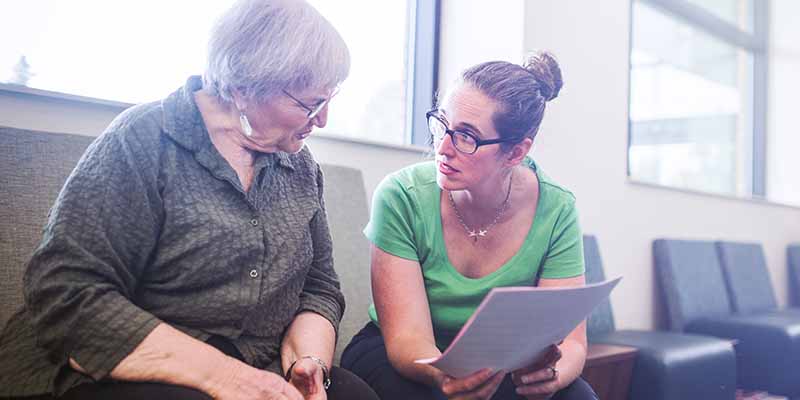Temporary Support to Safety Net Clinics May Not Be Enough, New Study Shows
Stories - March 15, 2023

By Jill Pope, Senior Technical Writer & Editor
What if you needed medication but could not get to a pharmacy?
What if you could get to a pharmacy but had no way to pay for your prescription?
What if you could pay for your prescription but you could not refrigerate it?
What if you needed a follow-up appointment but had no way to get to the clinic?
Why health providers need to screen for social risks
Thinking about these questions, it is easy to see how a person’s life situation can make it difficult or impossible to follow their care plan. The environments in which people live – their housing stability, food security, transportation reliability, or ability to pay their utility bills – can have a major impact on their health. Such factors are called social risks, or adverse social determinants of health.
Over the past ten years in the U.S., a consensus has emerged that health care teams need to ask patients about their social risks, and try to lessen the potential impact of these risks by adjusting care plans accordingly or referring patients to appropriate resources. In just a few examples of this consensus, the Healthy People 2030 initiative, which identifies public health priorities for the U.S., made social determinants of health a key area of focus. Further, in January 2021, the Centers for Medicare & Medicaid Services (CMS) issued guidance to state health officials to help them address patients’ social needs. And a growing number of state Medicaid agencies are requiring that health care providers report on social risk-related efforts.
Special challenges in CHCs
However, implementing social needs screening across all health care settings will be a challenge. Many questions remain about how to get and keep such programs up and running, particularly in community health centers (CHCs). These clinics are chronically under-resourced, and primarily serve uninsured, underinsured, and low-income patients with high rates of social risks.
CHCs face multiple hurdles when implementing social risk screening. These include ensuring that the electronic health record (EHR) can receive and display social risk data, deciding when in workflows to ask patients about social risks, deciding how to review and act on social risks, and maintaining up-to-date lists of social service agencies. To overcome these hurdles, CHCs need assistance, especially considering their limited resources and the populations they serve. Evidence is therefore needed on what kind of support and how much support CHCs need to implement social risk screening and referral programs.
New study tests support for CHCs
A new study led by Rachel Gold, PHD, MPH, Senior Investigator at the Kaiser Permanente Center for Health Research in Portland, Oregon, and Lead Research Scientist at OCHIN Inc., and colleagues, assessed whether providing six months of technical assistance and coaching can improve CHCs’ implementation of social risk screening and referral-making. The results are published in NEJM Catalyst Innovations in Care Delivery (April 2023).
The study enrolled 31 clinics in California, Georgia, Massachusetts, Montana, Ohio, Oregon, Washington, and Wisconsin that were all part of the OCHIN network, which provides technology support to community clinics serving low-income populations. Study clinics received six months of support and coaching in using electronic health record tools in clinic workflows, tailored to each clinic’s needs.
Support improved screening temporarily, but CHCs will need more help
Dr. Gold’s study is the first to rigorously test whether supporting CHCs with technical assistance and coaching can help them implement social risk screening and referral-making. The study found that although screening increased significantly during the active support period, it was not sustained after the support ended, and no increase was seen in referrals to social services.
The tailored support temporarily increased screening at CHCs—a promising outcome. However, Dr. Gold noted, “It is critical that it appears to take longer than six months for CHCs to implement social risk screening, even with tailored expert support. If state and national policymakers want CHCs to conduct these social risk-related efforts, they must provide meaningful resources over a sustained period to help CHCs implement this practice change.”
Click here to read the implementation guide the research team created as part of this study
Gold and colleagues’ new study suggests that as state Medicaid policies begin requiring CHCs to document patients’ social risks, CHCs will need ongoing financial, coaching, and technical support to implement and sustain these activities.
Getting back to the questions we asked at the beginning, let’s add one more: What if your health clinic didn’t have the resources or the staff to ask if you needed help? What if they did?
This study was funded by the National Institute of Diabetes & Digestive & Kidney Disorders.